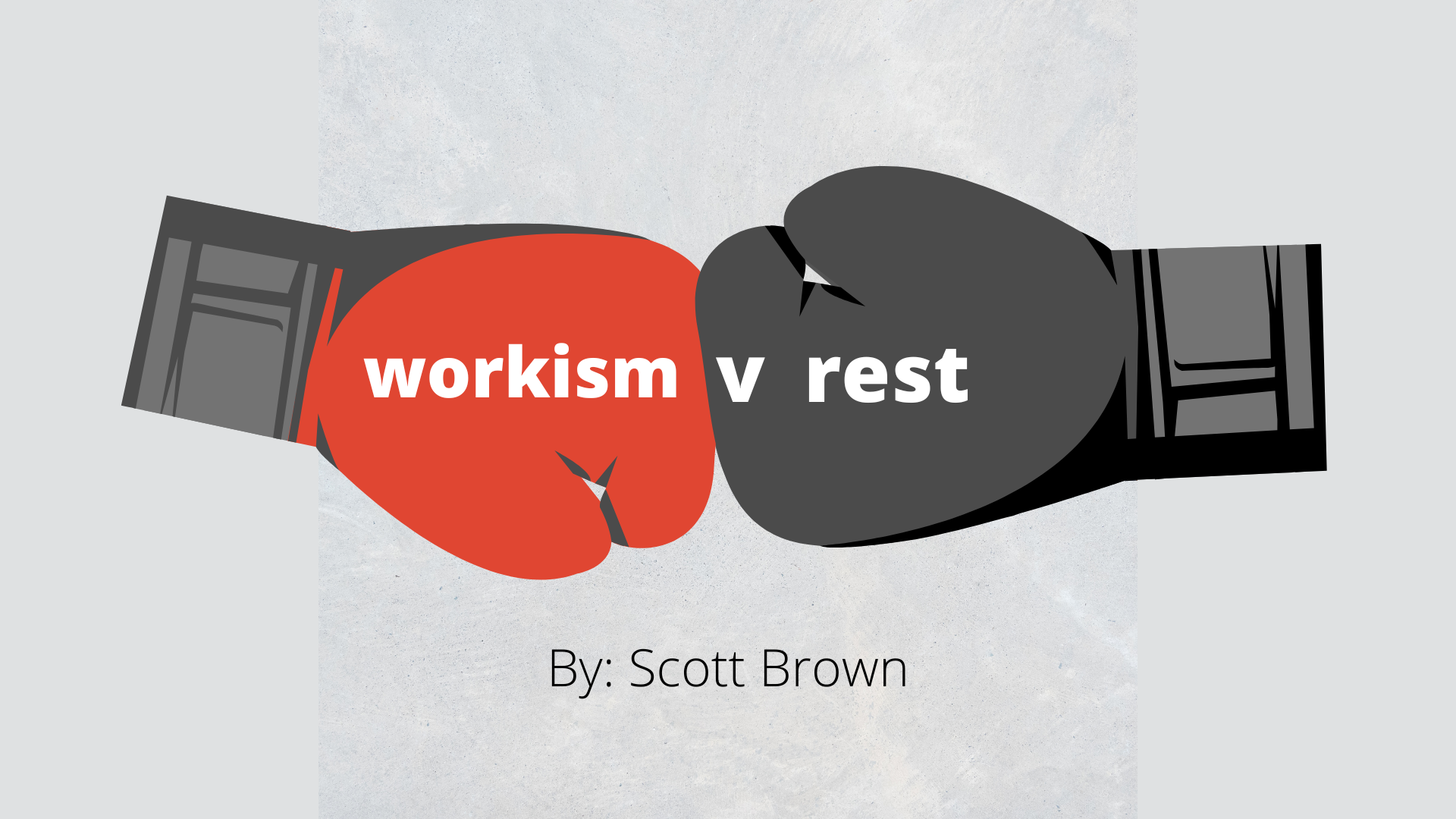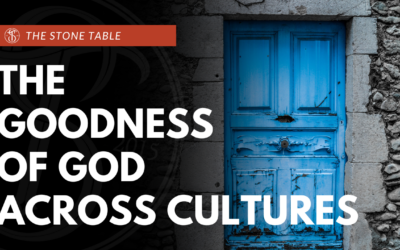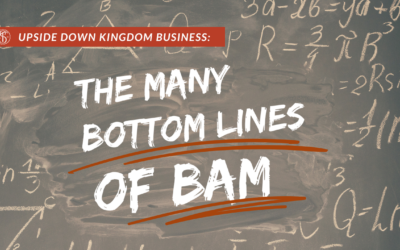I have been thinking a lot about rest lately. The time & place for it, the how-to, and the why. It’s a tough thing for us all to do sometimes, and, as I’ve written about before, I certainly haven’t always been the best at it!
I was thinking about this concept of rest: God rested from His work at the end of six days (debate me later) – He rested because He had accomplished some pretty sweet feats and was ready to assume His throne over His creation.
Later, God would institute the Sabbath to remind humankind of His pattern in creation, but also to give them some instituted, and needed, rest.
Today, we find ourselves neck deep in a society dominated by workism – a characteristic of our modern world and a new secular religion. Workism is the anti-rest, the anti-Sabbath, because it tells us that we have no room for rest in our world today. Workism says that “go, do, produce” is the new form of fulfillment, meaning our sense of peace is derived from our ability to produce enough to earn it. Sounds like… something.

As I ponder the concept of rest, I find that it has naturally been implemented in many parts of our lives – places where rest is an absolute must for survival & longevity.
Think, initially, of the body itself. If we opt not to sleep, ever, how long will we live? How long will we produce at an optimum functionality? Not long, right?
If we work our bodies during the day, as we do, and refuse to rest them at night, as we also often do, we are practicing an element of workism, and practicing something that damages our body on a regular basis.
Workism is a no-rest system. It is a work ideology that promotes massive productivity, a huge hustle & grind lifestyle, and absolutely minimal rest. Workism tells us that any rest is simply a lack of production, which is heavily counter-Biblical.
Operating Systems
Thinking through the basic operations of the created human body, we know that during the day we, and our nervous system, is ideally in the state of “go, go, go”. As we lie down at night to sleep, our nervous system enters the “rest, heal, repair” state. Without this “rest, heal, and repair” state, the “go, go, go” state becomes nearly impossible. Without rest, the body does not function.
Workism promotes a state of constant activity – a constant flow of schedules, busyness, and thinking miles ahead of today. It disallows us a presence of mind, interrupts the internal peace God has given us, and disrupts the deep sense of tranquility that is meant to mark the Christian life. Rest becomes a detriment to the idol of work.
Further, thinking on a smaller scale, consider working out. Not only do we need to take time between workouts to rest & repair our bodies, but even during the workout itself we must take rest between sets & exercises!
If we fail to rest between workouts, we don’t allow our bodies the time to heal. The tissue may not recover fully before the next workout, which may hinder strength, stamina, and muscle growth – if not alone contributing to a higher chance of injury.
In the same way, workism is like not resting between workouts. Workism is a ceaseless workout that doesn’t allow time for stretching, water, or rest. What kind of gains do you think you’ll be making in this program?

Ultimately, anyone looking at fitness with some kind of wisdom will know that the goal is not immediate results, but longevity. Unfortunately, our world is obsessed with the immediate – we must see, feel, taste, and touch it right now or it simply isn’t good enough. This is the cornerstone of our work ideology in the US, an image of workism at work.
Workism is obsessed with the immediate, the right now. It is microwaved dinners, to-go cups of coffee, and text messages instead of face-to-face conversation. Workism is “I’m too busy for ___” and “I can’t afford not to ___”. Workism is fanatical.
Yet, this is the result of our sin. This is the result of sin entering the world and a false idol replacing the one true God in our lives: corrupting our work and ushering our worship to the wrong place. This is what workism does.
Workism and Rest
Recently, my girlfriend & I went to donate plasma. It was my first time giving plasma and it took a lot out of me! I was exhausted afterwards. It was a big process to get registered, go through all of the safety & consent protocols, and then get some massive amount of fluid removed from my body. Plus, I have hated needles since I was a kid, so I was a little stressed.
Thinking about how exhausted I was afterward, and how much hydration I needed, I could not imagine having tried to work out after that – or even getting a coffee and keeping my day going. I was beat! I ate lunch and as soon as I got home, I took a hard nap. I was out.
Rest is vital. Without it, my body would not have been able to keep sustaining me during the day. I wouldn’t be able to recover from a massive shock to my system and I wouldn’t be able to produce enough replacement plasma, let alone donate again!
Workism steals our healing. It robs us of joy, peace, and the serene life experience of worshipping God through our work. It is a corrupt tool of a defiling devil that seeks to steal worship away from God. I don’t know about you, but that makes me want to worship God even more.
If the enemy can’t stop your worship, he will distract you enough to shift it to the wrong place. That is where workism comes in – the worship of one’s work.
Today
Workism is a real threat to the American (and Western) Christian, but also the whole world. It is an idolatry that promises a sense of security, identity, and peace based solely on our ability to produce. This is not salvation, this is works-based theology.
Our works have never been enough to save us, yet workism promises freedom through work. It tells us that by filling our schedules more, we can have more time on our hands. It promises that through selling our identity to our job title, we can find purpose. Isn’t that backwards?
Workism permeates the entire outfit of the Western capitalistic marketplace and has even crept into the Church. We, even as Christians, must continue to be diligent in our awareness of where we are placing our hope. Are we relying on our paychecks to preserve us or are we relying on God? There is a difference there.
Our paycheck is not our salvation, and our work is not our God. Yet, God does supply our needs through our paycheck, and offers us provision, fulfillment, and a vehicle of worship through our work.
While workism may never disappear in a fallen world, Christians do have a responsibility to be in tune with the Spirit and searching themselves to see where their treasure truly lies. Let it be found in the Lord.




